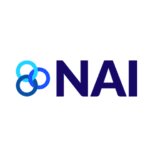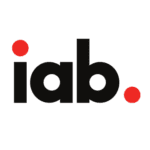Why Monitor KPIs (Key Performance Indicators)?
The travel and hospitality sector thrives on providing exceptional customer experiences. Monitoring and analyzing the right KPIs are essential for businesses to make informed decisions, enhance their services, and stay ahead of the competition. By focusing on key metrics such as occupancy rate, ADR, RevPAR, customer satisfaction, online reviews, and employee satisfaction, businesses can create a positive impact on their bottom line and build long-lasting relationships with their guests.
The travel and hospitality industry is a vast and dynamic sector that caters to millions of travelers worldwide. To stay competitive in this ever-evolving landscape, businesses need to consistently monitor and improve their performance. Key Performance Indicators (KPIs) play a crucial role in this pursuit, providing valuable insights into various aspects of operations.
In this blog, we will explore the most important travel and hospitality KPIs, helping businesses optimize their strategies and enhance customer experiences.
Occupancy Rate
Occupancy rate is a fundamental KPI for hotels and accommodations, indicating the percentage of available rooms or beds that are occupied during a given period. A high occupancy rate is desirable as it signifies higher revenue and efficient utilization of resources. However, maintaining the balance between occupancy and pricing is crucial to avoid overbooking or potential loss of revenue during peak seasons.
Average Daily Rate (ADR)
The Average Daily Rate is another vital KPI for the hospitality sector. It represents the average income generated per occupied room during a specific period. A steady increase in ADR indicates that a hotel is effectively pricing its rooms based on demand and perceived value. Striking the right balance between ADR and occupancy rate is vital to maximize revenue and profitability.
Revenue per Available Room (RevPAR)
RevPAR is a comprehensive KPI that considers both occupancy rate and ADR. It measures the overall performance of a hotel or accommodation by indicating how much revenue is generated per available room. It provides a holistic view of a property’s financial health and efficiency.
Customer Satisfaction (CSAT) Score
In the hospitality industry, customer satisfaction is the key to success. The CSAT score measures the level of satisfaction among guests based on their experiences with various services. Regularly surveying guests and analyzing feedback can help identify areas that need improvement and enable businesses to provide exceptional guest experiences.
Online Reviews and Ratings
With the advent of online review platforms, travelers heavily rely on customer reviews and ratings to make their decisions. Monitoring and analyzing online reviews can give businesses insights into their reputation and service quality. Positive reviews can attract more customers, while addressing negative feedback can help in improving services.
Return Rate and Customer Loyalty
Repeat customers are a significant asset for any business in the travel and hospitality sector. Calculating the return rate and measuring customer loyalty can provide valuable information about the effectiveness of loyalty programs and the overall guest experience. Repeat customers often spend more and can become advocates, driving new business through word-of-mouth recommendations, making this one of the most important travel and hospitality KPIs out there.
Employee Satisfaction and Retention
Behind every successful hospitality business are satisfied and motivated employees. Tracking employee satisfaction levels and turnover rates is crucial to maintaining a skilled and dedicated workforce. High employee turnover can impact service quality and create additional recruitment and training costs.
Website Traffic and Conversion Rate
Most importantly, in the digital age, an effective online presence is paramount for the travel and hospitality sector. Monitoring website traffic and conversion rates helps businesses understand their online performance, identify potential issues, and optimize their online booking process to increase conversions.
KPIs for a Reason: Targeted Marketing and Personalization
A Customer Acquisition Platform empowers travel and hospitality businesses to gather valuable data on their potential customers, enabling them to target the right audience with the right message at the right time. These platforms use advanced analytics and artificial intelligence to segment audiences based on demographics, preferences, and behavior, allowing businesses to deliver personalized marketing campaigns. Personalization creates a deeper connection with customers, increasing the likelihood of conversion and fostering brand loyalty.
Enhancing Customer Experience
The travel and hospitality industry heavily relies on providing exceptional customer experiences. A Customer Acquisition Platform helps streamline customer interactions, making it easier for prospects to find and engage with your business. Whether it’s a user-friendly website, a convenient booking process, or prompt customer service, CAPs play a pivotal role in creating a seamless and satisfying experience for potential customers.
Multi-Channel Outreach
Customers interact with businesses through various platforms and devices in today’s omnichannel landscape. A Customer Acquisition Platform facilitates seamless multi-channel outreach, enabling travel and hospitality businesses to maintain a consistent presence across social media, email, mobile apps, and other relevant channels. This cohesive approach amplifies brand visibility, maximizing the chances of reaching potential customers at various touchpoints.
Optimizing Marketing ROI
Investing in marketing campaigns without adequate tracking and measurement can be costly and inefficient. CAPs provide valuable insights into the performance of marketing efforts, allowing businesses to optimize their strategies. By understanding wåhich channels and campaigns generate the highest return on investment (ROI), companies can allocate their resources more effectively and make data-driven decisions for future marketing endeavors.
Data-Driven Decision Making
Data is the backbone of effective business decisions. Customer Acquisition Platforms gather and analyze vast amounts of data, helping travel and hospitality businesses gain valuable insights into customer behavior, market trends, and competitor performance. With this knowledge, companies can make informed decisions to stay ahead in the rapidly evolving landscape.
Streamlining Customer Retention Strategies
Retaining existing customers is just as crucial as acquiring new ones. A well-rounded Customer Acquisition Platform can support customer retention efforts through targeted offers, loyalty programs, and personalized communication. By engaging with past customers and keeping them informed about exciting offers and experiences, businesses can build lasting relationships that turn into repeat business.
When it comes to KPIs in the Travel and Hospitality sector, embracing data-driven strategies and adapting to changing customer preferences will undoubtedly lead to continued success in this dynamic industry.




